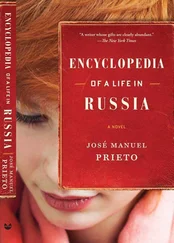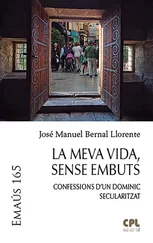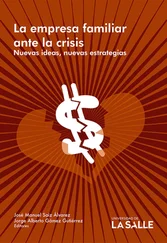And Vasily, his hand extended, having discovered, the moment Kirpich and Raketa came in, that they were there to kill him; the gesture of one seeking to ward off men whom he fears, to keep them from approaching any nearer. And that hand, too, tracing a lesser arc now, pointing to the spot where they were to sink down, the moment he understood from the gaze of the two new arrivals that the elders had countermanded the original order. Meaning that they owed obedience to him, to their king.
Both assassins would stop and exchange astonished gazes, instantly understanding the sudden change in the intentions of their Moscow bosses and the rest of it, and would then proceed forward, but no longer to kill Vasily. To mutter, perhaps also obeying an order: Our Father . And then louder: Our Father! All their hatred, their infinite reserves of violence, transformed into wonder and devotion. With the facility and understanding that only the mafia can grasp, in its acceptance of a hierarchy: the total allegiance due a boss or godfather in the mafia. Orders understood and heeded without doubt or hesitation, without halting the smooth, slow movement of the red point of their knees which, borne downward by that order, appeared to glide and land softly on the cushion or royal footstool at the feet of Basil.
“At the feet of a pseudo Basil.”
“At the feet of a pseudo Basil, then. Who cares?”
4
Even I, a foreigner, could handle this. As when a director is invited to the Royal Danish Theater in Copenhagen, though he knows no Danish, not a word. Well, maybe one word: perhaps he can say “bad,” in Danish, to shake up the actors. But through the mouth of his assistant, his interpreter, comes his wise guidance on the lighting, the mechanics of a gesture, the wellspring of an emotion. And on opening day everyone is amazed by the brilliance of actors whose performances had until then been mediocre.
Guiding Vasily via remote control, like a puppeteer, making him raise the right hand and extend it forward, majestically caressing the head of the child bearing the bouquet of flowers. Vasily, moving within a sphere of crystal, an immense gem. Softly applying the bottom of his foot, moving it forward with care, the soft chamois of a soft shoe that makes it roll forward, applying its gentle torque to the entire sphere. Stopping, casting glances to both sides, as the Sun King did upon making his entrance into Versailles. Without passing through its walls, his eyes resting on the surface of the crystal, some courtier on the receiving end of that sight line, or the peasant bearing the summons. The careful spatial order, the pantomime that for well-known kings — Rainier of Morocco — generates a royal essence or substance.
The same thing in a man intent on dancing it. Liberating within him, within his bloodstream, the qualities of a perfect king. Which I can cite here extensively, in keeping with Valentinian’s rule, always haughtily ignored (no, not haughtily, perfidiously) by the Commentator: to cite no more than five authors. A king, states Julius Pollux, a king must be … Or rather, he says:
5
“ Praise the king with these titles: Father, benign, peaceful, benevolent, foresighted, just, humane, magnanimous, frank. Say that he is no money-grabber nor a slave to his passions; that he controls himself and his pleasures; that he is rational, has keen judgment, is clear thinking and circumspect; that he is sound in his advice, just, sensible, mindful of religious matters, with a thought to the affairs of men; that he is reliable, steadfast, infallible, that he has far-reaching ideas, is endowed with authority; that he works hard, accomplishes much, is deeply concerned for those over whom he rules and is their protector; that he is given to acts of kindness and slowly moved to vengeance; that he is true, constant, unbending, prone to the side of justice, ever attentive to remarks about the prince; that he is well mannered, readily accessible, affable in a gathering, agreeable to any who want to speak with him, charming, and open-countenanced; that he concerns himself for those subject to his rule and is fond of his soldiers; that he wages war with force and vigor but does not seek opportunities for it; that he loves peace, tries to arrange peace, and holds steadily to it; that he is opposed to changing forcibly the ways of his people; that he knows how to be a leader and a prince and to establish beneficial laws; that he is born to attain honors and has the appearance of a god. There are in addition many things that could be set forth in an address, but cannot be expressed in just a word or two.”
6
Except — I noticed this difficulty immediately — that a man, a baker, let’s say, in Padua, who by the most incredible fortuity receives an embassy of nobles come to inform him (to his infinite astonishment) that he is the lost heir of the House of Savoy! This man of austere habits, able to dine on a crust of bread, who, as he took sacks down to the mill and brought sacks back up from the mill, never once dreamed of a fortune, and when it was in his hands, was indeed circumspect, no money-grabber. But not your father. Not Vasily, who immediately, as soon as the bills passed into his possession in that cabin in the woods, saw miniature yachts, minuscule Mercedeses dancing before his eyes, and this house, here in Marbella, full-size, which he bought, ostentatiously, in cash, the briefcases stuffed with banknotes that he presented to the sellers who choked and salivated (they by no means free of the charge of money-grabbereither).
A Russian! They’d quoted him an exorbitant price, which later turned out to be 25 percent more than the neighboring mansions, and he hadn’t blinked, not because he was no money-grabberbut because he was a money-lover and confident he would come up with much more of the stuff, that he possessed the infallible formula for making money. Out of keeping with his rank here, viewed from this angle, incapable of fitting into the mold of a king and less still into that of a perfect king.
Not reliable, steadfasteither. For how to endow his figure with the greyhound sleekness of a Duke of noble blood, make him abandon his crude manners, his way of shambling across the garden to the swimming pool bar for a beer? Looking, as he moved, like a man who’d stolen a fortune, who perhaps was toying with the expedient of growing fat, eating fishsticks unceasingly in order to attain the objective of hiding himself from sight inside a hugely fattened body. Could this be called reliable? Could this be called steadfast?
Certainly not, quite the opposite: a brutally voluble person, changing his mind every second, who endlessly consulted the tiny screen of his cell phone throughout the night they spent in the cabin, continually on the point of standing up and confessing everything to the gangsters. And not steadfasteither. Because he’d accepted the idea, it had struck him as good, and then, on the way to the cabin, when they had their goal in sight and while Batyk (pretending to be a Yakut) was rubbing his hands with gusto, your papa suddenly entertained and esteemed the idea of making a U-turn and racing back to E* in the jeep without selling anything. So how reliable, then? How steadfast?
Becoming aware of this difficulty and pointing her double error out to Nelly, on the basis of the Book’s authority and of this argument, which was to my mind insurmountable: that imposture is intimately linked to commentary. The result would be impossible to sustain; we would not succeed in deceiving any reader with our swindle, just as I myself always react when confronted with the Commentator’s falsity and imposture.
Читать дальше












